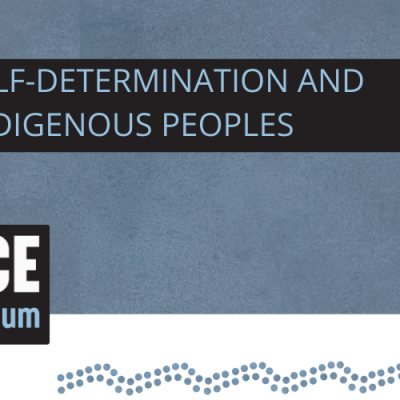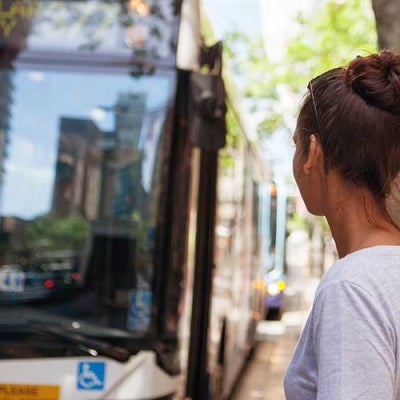Refine results
-
Disability Rights5 May 2025Webpage
Chapter 2 | How to provide equal access to digital goods and services
Contents Introduction Business Benefits Implementing a strategic approach to providing equal access Accessibility in the development cycle Skills development Accessibility in the procurement process Accessibility and risk management Introduction This Chapter provides further information and adds consideration such as the business case for addressing digital accessibility and the need to… -
Aboriginal and Torres Strait Islander Social Justice2 June 2025Speech
Mabo Oration 2025 One Land – Two Laws – It’s Black and White
Acknowledgements Good evening, all Distinguished guests, Elders, Aboriginal and Torres Strait Islander family, community, friends and colleagues - and my family, children and grandchildren who are here tonight – particularly my sister Kerry who has travelled from Rockhampton to be here, and my Aunty Kathy – my mum’s sister and the matriarch of our family who travelled from Sydney. My name is… -
Aboriginal and Torres Strait Islander Social Justice4 August 2023Webpage

Self-determination and Indigenous peoples
Self-determination is an ongoing process of ensuring that peoples are able to make decisions about matters that affect their lives. Essential to the exercise of self-determination is choice, participation and control. The outcomes of self-determining processes must correspond to the free and voluntary choice of the people concerned, including in relation to the Indigenous Voice to Parliament… -
Legal30 January 2019Submission
Migration (Validation of Port Appointment) Bill 2018
1 Introduction 1. The Commission makes this submission to the Senate Legal and Constitutional Affairs Legislation Committee in relation to the Migration (Validation of Port Appointment) Bill 2018 (Cth) (the Bill) introduced by the Australian Government. 2 Summary 2. The Commission welcomes the opportunity to make a submission in relation to this Bill. 3. The Bill seeks to retrospectively… -
Disability Rights30 July 2020Publication

Access under Disability Standards for Accessible Public Transport
These Guidelines have been developed by the Australian Human Rights Commission (the Commission) to provide clear and practical assistance to facilitate compliance with the Disability Standards for Accessible Public Transport 2002 (Cth) (the Transport Standards) through the use of equivalent access. -
14 December 2012Book page
Annual Report 2002-2003: Chapter 6
In the contemporary world, especially amongst first world economies, the culture of civil liberties, freedoms and non-discrimination are reasonably well established and these precepts have clear links to innovation, creativity and the broader concepts of economic productivity and a well-functioning civil society. -
14 December 2012Book page
Human rights - what do I need to know? (2008)
All Australians have human rights. Human rights are universal: they are for everyone, everywhere, everyday. Human rights are based on values such as freedom, equality and dignity and seek to protect our quality of life. -
14 December 2012Book page
Annual Report 2002-2003: Appendices
The International Labour Organisation Convention 111 deals with discrimination in employment and occupation. Australian adherence to this Convention provides that all people have the right to equal treatment in employment and occupation without discrimination on the basis of: -
14 December 2012Book page
Native Title Report 2002: Introduction
The year under review in this, my fourth Native Title Report, is a year in which the High Court has handed down its decision in several significant native title cases thus elucidating the principles upon which the recognition and extinguishment of native title are determined. 2002 marks the end of a ten year period since the Mabo decision [1] first introduced the dual concepts of recognising and… -
Legal14 December 2012Webpage
No. V 470 of 2002
1. The Human Rights and Equal Opportunity Commission (the 'Commission') files these written submissions pursuant to the orders entered on 13 September 2002. The Commission makes no submissions on the issue of whether the Minister should be granted leave to appeal from the judgment and orders of Merkel J. On the assumption that such leave is granted, the Commission's submissions address the proper… -
14 December 2012Book page
HREOC Social Justice Report 2002: Chapter 3 - National progress towards reconcilation in 2002 - an equitable partnership?
Social Justice Report 2002 back to contents Chapter 3: National progress towards reconciliation in 2002 - an equitable partnership? Indigenous policy within the broader context of strategic leadership for Australia Implementing practical reconciliation 1) 'Changing Direction', the 5-point plan 2) 'Agreement making and sharing common ground' 3) Expenditure on Indigenous-specific programmes…
